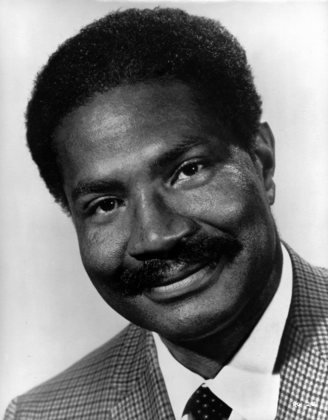Ossie Davis (Raiford Chatman Davis)

Davis was born Raiford Chatman Davis in Cogdell, Clinch County, Georgia, a son of Kince Charles Davis, a railway construction engineer, and his wife Laura (née Cooper; July 9, 1898 – June 6, 2004). The name Ossie came from a county clerk who misheard his mother’s pronunciation of his initials “R.C.” when he was born. So he inadvertently became “Ossie” when his mother told the courthouse clerk in Clinch County, Ga., who was filing his birth certificate that his name was R.C. Davis. Davis experienced racism from an early age when the KKK threatened to shoot his father, whose job they felt was too advanced for a black man to have. Following the wishes of his parents, he attended Howard University but dropped out in 1939 to fulfill his acting career in New York; he later attended Columbia University School of General Studies. His acting career, which spanned eight decades, began in 1939 with the Rose McClendon Players in Harlem. During World War II, Davis served in the United States Army in the Medical Corps. He made his film debut in 1950 in the Sidney Poitier film No Way Out. He voiced Anansi the spider on the PBS children’s television series Sesame Street in its animation segments. When Davis wanted to pursue a career in acting, he ran into the usual roadblocks that blacks suffered at that time as they generally could only portray stereotypical characters such as Stepin Fetchit. Instead, he tried to follow the example of Sidney Poitier and play more distinguished characters. When he found it necessary to play a Pullman porter or a butler, he tried to portray the character seriously and not in a stereotypical manner.
In addition to acting, Davis, along with Melvin Van Peebles, and Gordon Parks was one of the notable African-American directors of his generation: he directed movies like Gordon’s War, Black Girl and Cotton Comes to Harlem. Along with Bill Cosby and Poitier, Davis was one of a handful of African American actors able to find commercial success while avoiding stereotypical roles prior to 1970, which also included a significant role in the 1965 movie The Hill alongside Sean Connery plus roles in The Cardinal and The Scalphunters. However, Davis never had the tremendous commercial or critical success that Cosby and Poitier enjoyed. As a playwright, Davis wrote Paul Robeson: All-American, which is frequently performed in theatre programs for young audiences. Davis found recognition late in his life by working in several of director Spike Lee’s films, including Do The Right Thing, Jungle Fever, She Hate Me and Get on the Bus. He also found work as a commercial voice-over artist and served as the narrator of the early-1990s CBS sitcom Evening Shade, starring Burt Reynolds, where he also played one of the residents of a small southern town. In 1999, he appeared as a theater caretaker in the Trans-Siberian Orchestra film The Ghosts of Christmas Eve, which was released on DVD two years later. For many years, he hosted the annual National Memorial Day Concert from Washington, DC. His distinguished bearing made him a perfect choice for the concert. Following his passing, the hosting duties passed on to the twosome of Gary Sinise and Joe Montegna. Davis’s last role was a several episode guest role on the Showtime drama series The L Word, as a father struggling with the acceptance of his daughter Bette (Jennifer Beals) parenting a child with her lesbian partner. In his final episodes, his character was taken ill and died. His wife Ruby Dee was present during the filming of his own death scene. That episode, which aired shortly after Davis’s own death, aired with a dedication to the actor.
In 1948, Davis married actress Ruby Dee. In their joint autobiography With Ossie and Ruby, they described their decision to have an open marriage (later changing their minds). In the mid 1960s they moved to the New York suburb of New Rochelle where they remained ever after. Their son Guy Davis is a blues musician and former actor, who appeared in the film Beat Street and the daytime soap opera One Life to Live. Their daughters are Nora Davis Day and Hasna Muhammad. They were well known as civil rights activists, and were close friends of Malcolm X, Jesse Jackson, Martin Luther King, Jr. and other icons of the era. Davis and Dee’s deep involvement in the movement is characterized by how instrumental they were in organizing the 1963 civil rights March on Washington for Jobs and Freedom, even to the point of serving as emcee. Davis, alongside Ahmed Osman, delivered the eulogy at the funeral of Malcolm X. He re-read part of this eulogy at the end of Spike Lee’s film Malcolm X. He also delivered a stirring tribute to Dr. Martin Luther King Jr, at a memorial in New York’s Central Park the day after King was assassinated in Memphis, Tennessee. Davis was found dead in a Miami, Florida, hotel room on February 9, 2005. An official cause of death was not released, but he had heart problems.
Born
- December, 18, 1917
- USA
- Cogdell, Georgia
Died
- February, 04, 2005
- USA
- Miami Beach, Florida
Other
- Cremated

